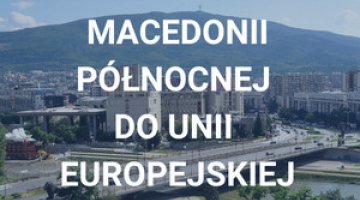Political impasse in Macedonia
On 17 May Skopje saw an anti-government demonstration, organised by the opposition party, the Social Democratic Union of Macedonia (SDSM) led by Zoran Zaev. Approximately 40,000-60,000 people attended the protest, which was one of the largest ever held in Macedonia. The protesters demanded the resignation of Prime Minister Nikola Gruevski and the establishment of a technical government which would call a snap parliamentary election. Gruevski leads the current coalition government composed of VMRO-DPMNE and a party representing the Albanian minority, DUI. In response to this demonstration VMRO-DPMNE organised a rally in support of the government on 18 May, where a similar number of participants gathered. Attempts at mediation between the conflicted parties made by MEPs and the Commissioner for European Neighbourhood Policy, Johannes Hahn have so far failed to produce any results.
Commentary
- VMRO-DPMNE, which has been in power since 2006, won the parliamentary election in 2014. Since the election the political crisis in Macedonia has been intensifying. The opposition is boycotting the work of parliament, claiming that the election was rigged and that the ruling party remains in power by controlling the media, the judiciary system and other state institutions. The conflict was aggravated in February this year when the opposition began releasing recordings of phone conversations which compromised leading VMRO-DPMNE politicians. The worsening conflict between the main political parties is being accompanied by increasing social discontent caused by the poor economic situation, autocratic methods of governance and the government’s ad hoc measures (e.g. increasing taxes). Over the last half year various social groups have organised protests in Skopje: students, journalists, trade unions, teachers and non-governmental organisations.
- A new element of the anti-government protests in Macedonia is the co-operation between different groups which are critical of the government. The representatives of non-governmental organisations have overcome their aversion to the opposition party SDUM which was accused of clientelism and corruption during its term in power. The factor which has united them was an incident in Kumanovo on 9-10 May, where a police operation against an armed group of Albanians led to 22 fatalities. The protesters do not believe the official version of the events and claim that the government provoked this incident in order to shift attention away from the situation in the country and to intensify ethnic tensions.
- At present an attempt to find a compromise solution to the political crisis does not seem very likely. Prime Minister Gruevski has ruled out the possibility stepping down, arguing that he won the election last year. He has also taken measures intended to pacify social unrest – his three most controversial aides, including the minister of the interior and the head of the intelligence agency have all resigned. However, the government is holding talks with the opposition to buy time since they believe that the protests will fizzle out. Nevertheless, the protesters have announced that they will hold demonstrations until the government resigns and their determination is proven by the establishment of a tent city in front of the government’s buildings in Skopje. Furthermore, the polarisation between the government’s supporters and opponents is likely to intensify in the immediate future.


